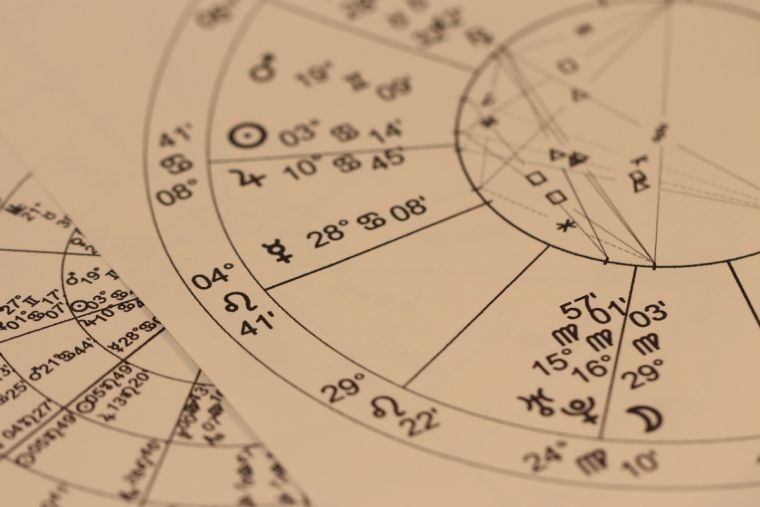Can Christians Believe In Astrology?

In our book Taboo Or To Do? we address East Asian disciplines such as yoga, T'ai Chi, energy healing and mindfulness that Christians engage with daily in school, workplaces and leisure. We also address topics such as Halloween and astrology.
Coming to faith today is more of a process than an event. That means in our Christian life and churches we must discuss disciplines that people may continue to hold on to as they become followers of Jesus. Understanding these things can also help act as a bridge for those who want to reach out missionally to people in our communities, and it may surprise some Christians to realise that astrology is mentioned in the Bible.
But when building bridges, a few points need to be kept clear:
1. There is the relationship between Daniel and the Magi in Nebuchadnezzar's court. The Magi were probably Persian astrologers and Zoroastrian priests. Daniel was promoted to be their chief (Daniel 2:48). At the nativity of Jesus there were Magi who were probably guided by several things, including the heavenly star, angelic appearances and dreams, and the scribes' knowledge of prophecy (Matthew 2:6). The lesson here is that the Magi as astrologers met Christ the creator of the cosmos. Here is a bridge for those who are interested in astrology.
2. A key concern is that astrology classically leans towards a fatalist or even determinist outlook, where the stars and planetary bodies signify what will happen. This tends to remove any sense of reliance on God as the creator who maps out how life is meant to be and who, through the risen Christ, offers us the power to become the best possible person that we can be.
3. Another concern is the spiritual dimension. To help one of our evangelism/apologetic classes understand astrology as it really is, we invited Barry – a prominent spokesperson on spirituality – to address the class as a guest. When he had finished speaking he asked for questions. One ministerial student who had been an active evangelist for several years asked Barry if he could do a quick "reading". Barry indicated that as the planets were in a peculiar alignment on the student's birth date, he could make some brief observations. He described the student's personality and what he did for a living before studying theology and was spot-on. You could sense that the class thought they were dealing with an intuitive.
Barry then described the characteristics of the student's wife, who was not present. He was uncannily accurate in all that he said and asked the student if he had a response. The student said: "Years ago I went to church and gave my life to Christ. If I had been brought to you, I would have given my life to astrology." There is a spiritual reality to astrology and it is not a game.
4. Keen followers of astrology know that during the Reformation, prominent Lutherans like Melanchthon were students of astrology. In Luther's day the dividing line between astrology and astronomy was not very clear. Luther once said of his friend that Melanchthon pursued astrology to deal with "grievous thoughts", whereas he himself would "take a drink of strong beer". John Calvin believed planetary bodies could influence our bodies in medical diagnosis.
5. There are some who believe that the gospel is found in the stars and that the 12 constellations symbolically refer to key biblical themes or events, such as Virgo pointing to the Virgin birth of Christ. We are not convinced on this one, but it is something to consider.
6. Many astrologers understand their role as being today's new priests. They are aware that the church often isn't in the marketplace and astrology is simply a device for allowing people to tell their story. However, Deuteronomy 4:19 offers a very direct rebuke to relying on astrology and worshipping creation rather the creator. In Taboo Or To Do we set out how conversations can move from creation to creator for those new to faith or those involved in missional engagement.
Finally, If you are interested in marketplace ministry, or adapting your church to a community event, we suggest the following in the book: have visual displays of the zodiacal signs with Christ at the centre, supreme over everything. Use the biblical Magi episode (Matthew 2) as a conversation point. Use the arts in pictures and music to represent the praise of creation (eg Psalm 19), or offer a prayer chair where a visitor may feel moved to express their need for guidance and closer contact with God.
Scottish theologian John Drane, in his foreword to the book, points out that as long ago as 1971, John Lennon's classic song Imagine heralded a world with "no religion". However, he says, "the secular tsunami that many expected has never quite materialised – at least not in the form that he envisaged". In fact, in the West we are not becoming less spiritual, but rather less Christian. We need to be equipped to have a conversation about the disciplines and issues of our day.
Ross Clifford and Philip Johnson co-founded the Community of Hope, which pioneered ministry into Mind, Body, Spirit lifestyle festivals. Clifford is the Principal of Morling Theological College in New South Wales and Johnson is an adjunct lecturer.
Taboo or To Do? is published by DLT, price £12.99.











